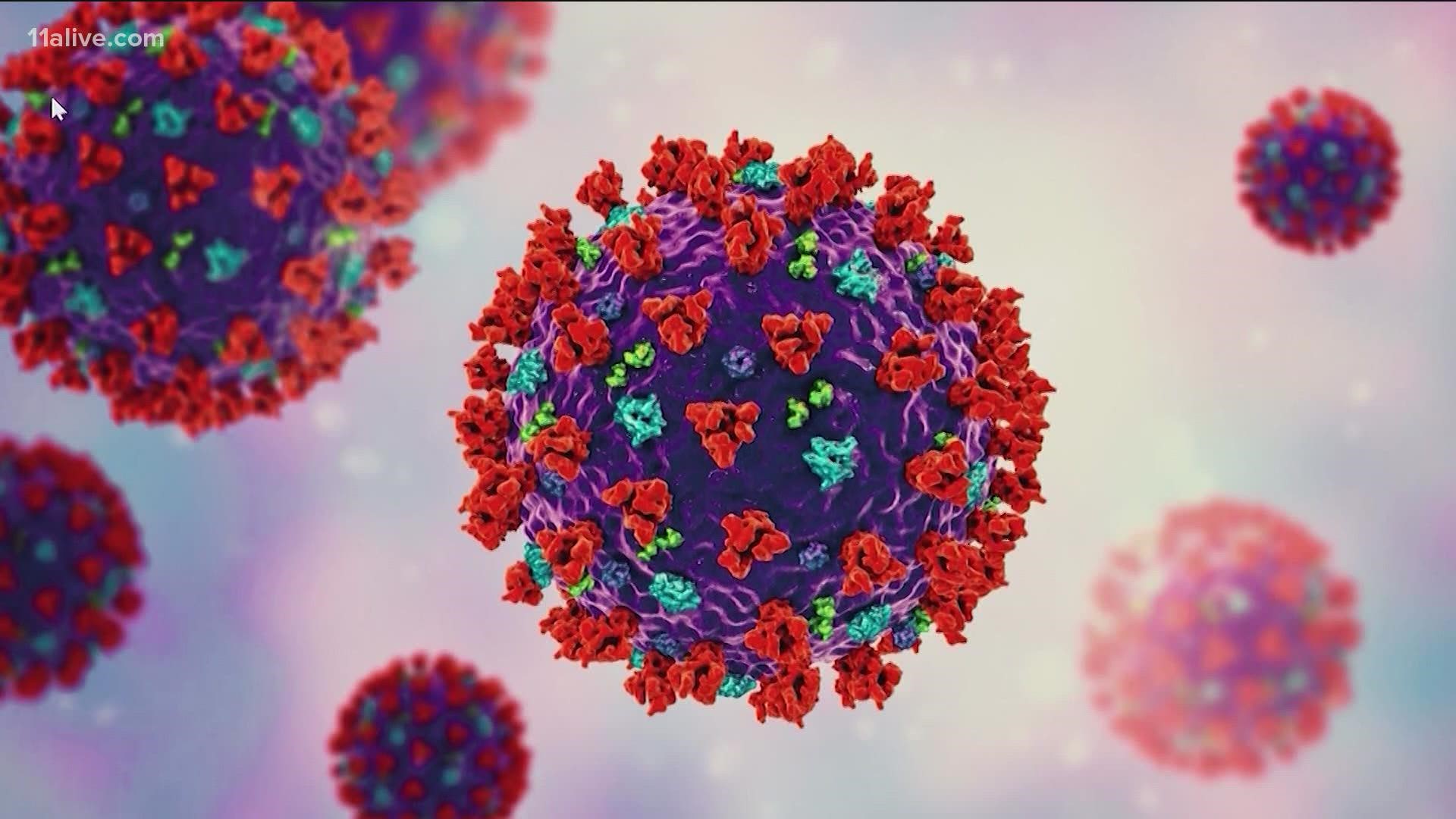ATLANTA — Georgia officials on Thursday reported the third case of the COVID-19 omicron variant identified in a state resident, the first with an unvaccinated individual.
The Georgia Department of Public Health has previously reported the first case in a resident - who had since traveled to New Jersey - last week. On Sunday officials reported the first case actively detected in Georgia, with a person who had recently traveled to South Africa.
The third case was identified in a person who had no recent international travel history, DPH reported. They are a metro Atlanta resident.
"The individual has mild COVID symptoms and is isolating at home," DPH said. "Contact tracing is underway to identify close contacts at risk of COVID-19 infection."
Much remains uncertain about how omicron compares to previous variants, such as delta, beyond it appearing to be substantially more transmissible. It's not yet clear how severe COVID presents with omicron, though DPH said that preliminary data indicate it "may cause less severe illness."
"Scientists are still researching how well the current COVID vaccines or natural immunity hold up against Omicron, and caution that it is too early to make conclusions about Omicron because there is not enough data available," DPH said.
The state is continuing to urge vaccinations as a means of slowing the spread of the new variant.
Dr. Kathleen Toomey, the Georgia Department of Public Health commissioner, said on Friday that less than 20% of the state's vaccinated population has received a booster so far, even though they've been widely available for months.
And that 20% comes from a statewide vaccination rate that is already among the lowest in the nation, at 51%.
That suggests as little as 10% of the state has the protection of a full vaccine dose plus booster shot.
“Vaccination and boosters are key to preventing further transmission of COVID-19 and help prevent new variants like Omicron from emerging,” Dr. Toomey said. “Only 51% of Georgians are fully vaccinated and of those individuals less than 20% have received booster doses.”

